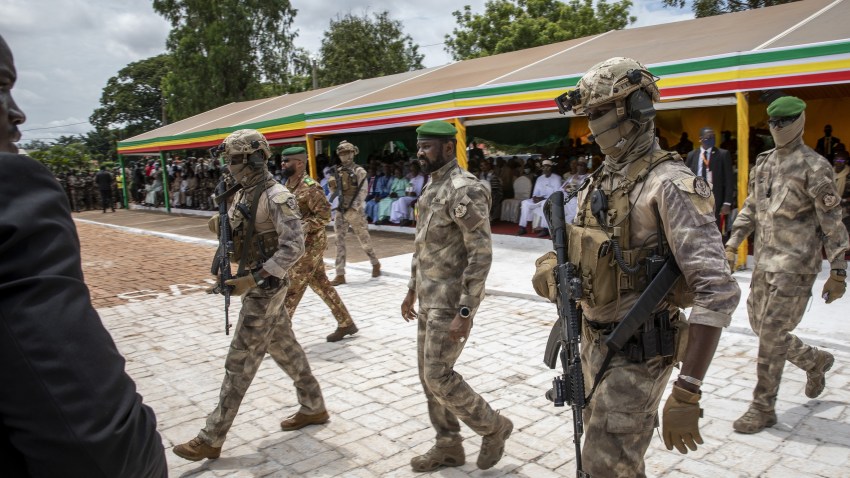Citing the need to maintain public order, Mali’s military junta imposed an indefinite ban last week on “the activities of political parties and associations of a political nature,” after more than 80 Malian political parties and civic groups called on the junta to honor its pledge to hold presidential elections this year. A government spokesperson said that the measure aimed to put an end to “sterile political debates” about Mali’s transition back to civilian rule. A similar ban was handed down to media organizations to cease all coverage of the activities of political activities or associations.
Mali’s transition was supposed to culminate in legislative elections scheduled for October 2023 and a presidential election scheduled for February 2024. But last September, the junta put the legislative elections on hold until after the presidential election, with the date to be determined by the new president. At the same time, it announced that the presidential election would be “slightly postponed for technical reasons,” including the adoption of a new constitution—completed last year—and a review of the country’s electoral lists. So far no new date has been announced for either poll.
Last week’s decree is the latest indicator that Mali’s “interim” government, which has been headed by the armed forces since a coup that overthrew former President Ibrahim Boubacar Keita in 2020, is anything but “interim” and has little desire to relinquish power. In recent months, Malian authorities have stepped up a crackdown on freedom of association and other civil liberties. Last December, Malian authorities dissolved the Observatory for Elections and Good Governance, an election-monitoring group, accusing it of “statements likely to disturb public order.” In February, they disbanded the political association Kaoural Renewal, citing “defamatory and subversive remarks” against the military junta. On March 6, the junta disbanded the Coordination of Movements, Associations, and Sympathizers of Imam Mahmoud Dicko, an influential umbrella group of political parties and civic associations critical of the military rulers. And a week later, it dissolved the Association of Pupils and Students of Mali, blaming the group for violent incidents in schools and universities across the country. Just yesterday, another coalition of civil society organizations critical of the junta was similarly dissolved for “disturbing public order.”

